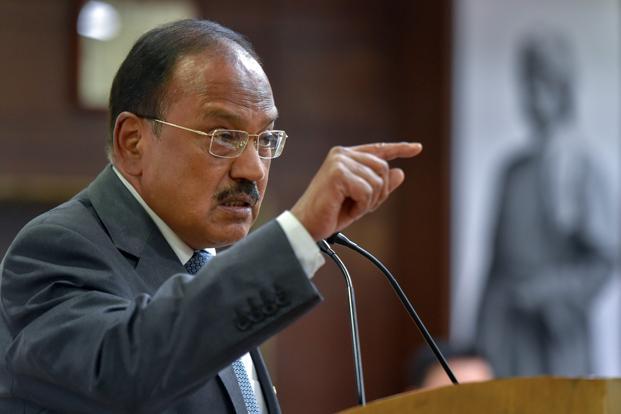
Ajit Doval, the man behind breakthroughs with China and Pak
National Security Adviser Ajit Doval played a key role in two recent developments that led to tamping down of tensions along India’s borders with Pakistan - along the Line of Control - and with China - along the Line of Actual Control, according to reports

National Security Adviser Ajit Doval played a key role in two recent developments that led to tamping down of tensions along India’s borders with Pakistan – along the Line of Control – and with China – along the Line of Actual Control, according to reports.
Indian and Pakistan militaries said on Thursday (February 25) that they had agreed to stop firing along the LoC in Kashmir. Last week, following a major breakthrough in talks to resolve the nine-month military standoff along the LAC in Ladakh, Chinese and Indian troops on the southern and northern shores of Pangong Tso began “synchronised and organised disengagement”. Doval, in his capacity as NSA, was deeply engaged in resolving both crises.
Also read: India, Pakistan agree to stop cross-border firing along LoC
The detente along the LoC came months after Doval and his counterpart in Islamabad, Moeed W Yusuf, initiated back-channel talks to dampen hostilities, according to a report in the Hindustan Times. Moeed Yusuf, Prime Minister Imran Khan’s special assistant on National Security Division and Strategic Policy Planning, confirmed that the two countries had been talking behind the scenes, according to the newspaper.
The joint statement was the first outcome of these conversations, which included at least one face-to-face meeting in a third country, HT quoted a source as saying.
Home Minister Amit Shah, Defence Minister Rajnath Singh and External Affairs Minister S Jaishankar were among the few officials aware of the back-channel talks, the source said.
Thursday’s joint statement said the directors-general of military operations (DGMO) of the two armies had agreed to “strict observance of all agreements, understandings and cease firing along the Line of Control” from Wednesday midnight.
The commanders also “agreed to address each other’s core issues and concerns which have a propensity to disturb the peace and lead to violence”.
A rare phone call between the commanders on Monday also helped build trust between the two sides, a source told NDTV.
In the eastern Ladakh sector, where Indian and Chinese armies had been facing off for months, the idea that India occupy the strategic heights on the southern banks of Pangong Tso came from Doval, according to India Today.
Also read: India, China agree on disengagement. This is how it will be carried out
The magazine quoted sources as saying it was a game-changing idea that prompted the Chinese to return to the negotiating table.
During a meeting in August last year, Doval suggested that Indian forces occupy the southern bank heights, including Rezang La, Rechen La, Helmet top and Aqi La, the sources said.
The meeting was attended by, among others, Chief of Defence Staff General Bipin Rawat and Army Chief General Manoj Mukund Naravane.
“What we have achieved so far is very good,” the magazine quoted Naravane as saying. “We had a number of meetings, and in these, the advice given by our NSA also came in extremely handy. His insight into strategic affairs and matters definitely helped us in chalking out our response.”

